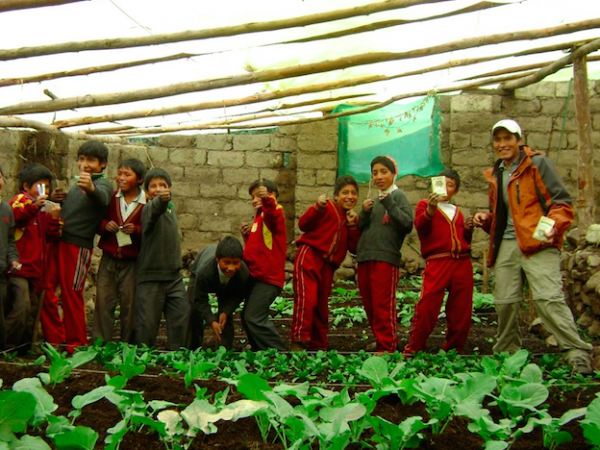On a shoestring budget, growing fresh tomatoes at 4,500 metres

In the Sacred Valley one development organization is doing things differently to help high-altitude communities help themselves.
Starting in 2010, the Andean Alliance for Sustainable Development (AASD) now helps to feed about a 1,000 kids in 7 communities in the district of Lares, near Cusco.
On the smell of an oily rag, the small, non-profit group works with Andean schools and households: building greenhouses to grow fresh, organic fruits and vegetables—much needed in poor, high-altitude communities where most meals centre on potatoes.
“The one that’s a hit with everybody is tomatoes,” says AASD’s Director of Operations, Adam Stieglitz.
AASD also runs education, women’s empowerment, and other programmes.
Mr Stieglitz says AASD has two aims: to tackle poverty and malnutrition in the mountains by enabling people to grow a diverse array of food, and to show the world a better way of doing development.
“There are so many irresponsible development projects that use a top-down model, often leaving long-term negative consequences,” says Mr Stieglitz.
The AASD approach, by contrast, does only what local communities need doing.
“We only work with people who want to work with us.”
Stieglitz is a graduate of the Middlebury Institute of International Studies at Monterrey, California, with which AASD maintains a long-term partnership.
Every summer, master’s students arrive to learn from the experience, build relationships, and undertake case studies.
Meagre funds are stretched further using local resources, including locals’ know-how.
Mr Stieglitz puts AASD’s success down largely to strong relationships.
“We won’t throw money at projects unless the community and the government is on board.”
- Go here to learn more and/or donate to the Andean Alliance on Sustainable Development.

Facebook comments